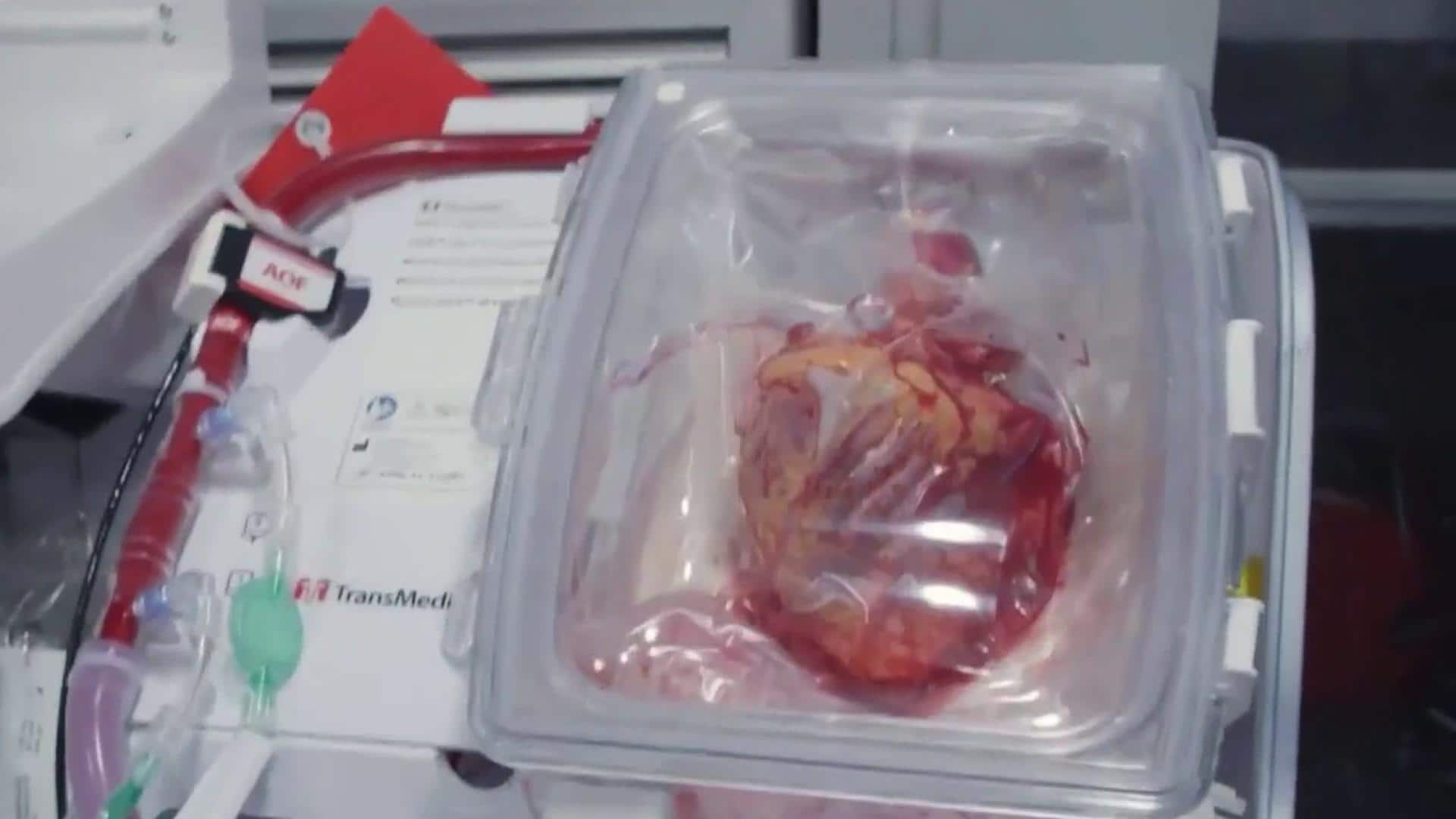
Breakthrough device keeps donor hearts beating for 9 hours
What's the story
A groundbreaking device, dubbed "heart-in-a-box," has been developed by researchers to prolong the preservation of donated hearts. This innovative technology, as per a study conducted by the University of Gothenburg, can significantly reduce early heart failure in transplant recipients compared to traditional cold storage methods. Unlike conventional techniques, the heart-in-a-box continuously supplies oxygen and nutrients to the heart, thereby preserving its health and function.
Extended preservation
'Heart-in-a-box' extends preservation time up to 9 hours
The current standard procedure for preserving donated hearts involves storing them in ice-filled coolers at 4°C in a potassium solution. However, this new study has found that a device known as hypothermic oxygenated machine perfusion (HOPE) or heart-in-a-box can extend the lifespan of donated hearts by up to nine hours. This technology maintains the heart at eight degrees and includes components such as a pump, a reservoir, and circulating fluid to keep the resting heart oxygenated while it awaits transplantation.
Expert insight
Oxygenation in the box is crucial for heart health
Andreas Wallinder, a cardiothoracic surgeon who developed this concept, explained the importance of oxygenation that takes place in the box. He stated, "During normal cold storage and transportation, we have no oxygenation or circulation in the cells." "But when we use the box, oxygenated and nutrient-rich fluid is continuously pumped through the heart, which allows it to function better and results in fewer complications in recipients after transplant."
Comparative study
Study compares heart-in-a-box with typical cooler storage techniques
The study compared the heart-in-a-box technology with typical cooler storage techniques for donated hearts. It aimed to assess the safety and health outcomes of heart transplant recipients within the first 30 days post-surgery. The research involved 204 adult patients from 15 clinics across eight European countries, who were randomly assigned to receive hearts stored in either a heart-in-a-box or a cooler. All donated hearts were sourced from brain-dead donors.
Reduced risks
Heart-in-a-box recipients have lower risk of heart failure
The study found that recipients of hearts preserved in a heart-in-a-box had a significantly lower risk of developing heart failure or severe organ dysfunction in comparison to those who received hearts stored in typical coolers. The risk of organ failure was 11% lower in the heart-in-a-box group. Goran Dellgren, Professor of Transplantation Surgery at Sahlgrenska Academy at the University of Gothenburg, hailed these results as a breakthrough in transplantation that could potentially expand the field and reduce complications.
Future implications
Heart-in-a-box could increase availability of organs for transplantation
Dellgren further noted that the heart-in-a-box could also increase the availability of organs for transplantation by allowing them to be transported over longer distances. He suggested that it might even enable the use of less ideal organs from older donors, potentially increasing the number of heart transplants. These insights highlight the potential impact of this innovative technology on future organ transplantation procedures and patient outcomes.